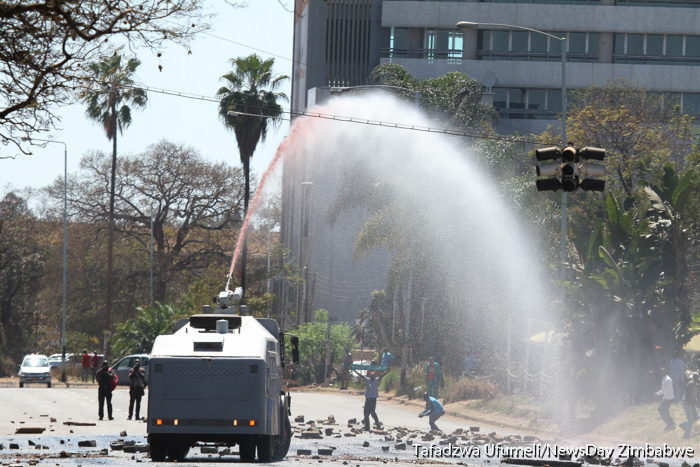
PRESIDENT Emmerson Mnangagwa’s pledge to reform electoral laws ahead of this year’s general elections should have come as good news to local civil society groups and opposition parties, that for years have shouted their voices hoarse for the levelling of the electoral playfield.
But it should not be lost on these groups that Mnangagwa belongs to the same Zanu PF, which a few years ago vowed not to reform itself out of power.
Therefore, his pledge to reform should be treated with suspicion given Zanu PF’s propensity and well-known history of indicating left, while turning right.
Their sixth sense should tell them that Mnangagwa has something up his sleeve.
There is something fishy going on here, considering that the government seems to be pussy footing over the issue.
The opposition should not get absorbed into the euphoria of the new dispensation.
Instead, they should not stop piling pressure for immediate implementation of reforms.
Elections are just about four months away and the reforms they are demanding ought to be put to test before the actual polling day.
- Chamisa under fire over US$120K donation
- Mavhunga puts DeMbare into Chibuku quarterfinals
- Pension funds bet on Cabora Bassa oilfields
- Councils defy govt fire tender directive
Keep Reading
So the earlier they are implemented, the better.
It will be self-defeating if opposition parties get distracted by the uneasy calm and sense of positivism around to pull their foot off the pedal, only to cry foul if Mnangagwa, one morning, wakes up on the wrong side of the bed and proclaims an election date before the field has been levelled.
Truth be told, the government has not shown any real commitment in attending to the sticking points that have always made sure the playing field was tilted in favour of Zanu PF.
If Mnangagwa is a moderate Zanu PF politician that he wants the whole world to believe he is, then one wonders why it has taken him this long to repeal such draconian laws as the Public Order and Security Act (Posa), Access to Information and Protection of Privacy Act (Aippa) and the Broadcasting Services Act to prove that he is a true reformist.
If the opposition parties allow themselves to be lulled into sleeping on the wheel like they have done in previous polls, then they would have no one to blame if they allow Mnangagwa’s administration to dictate the pace of the reforms.
It is important to have these reforms done before July.
It is unfortunate that such legal concerns end up mired in politics.
As long as key electoral laws such as the Electoral Act are not aligned with the Constitution, then the opposition can kiss goodbye any chances of a credible, free and fair election.
And participating in such elections simply means they are endorsing a flawed electoral process whose outcome is predictable.











